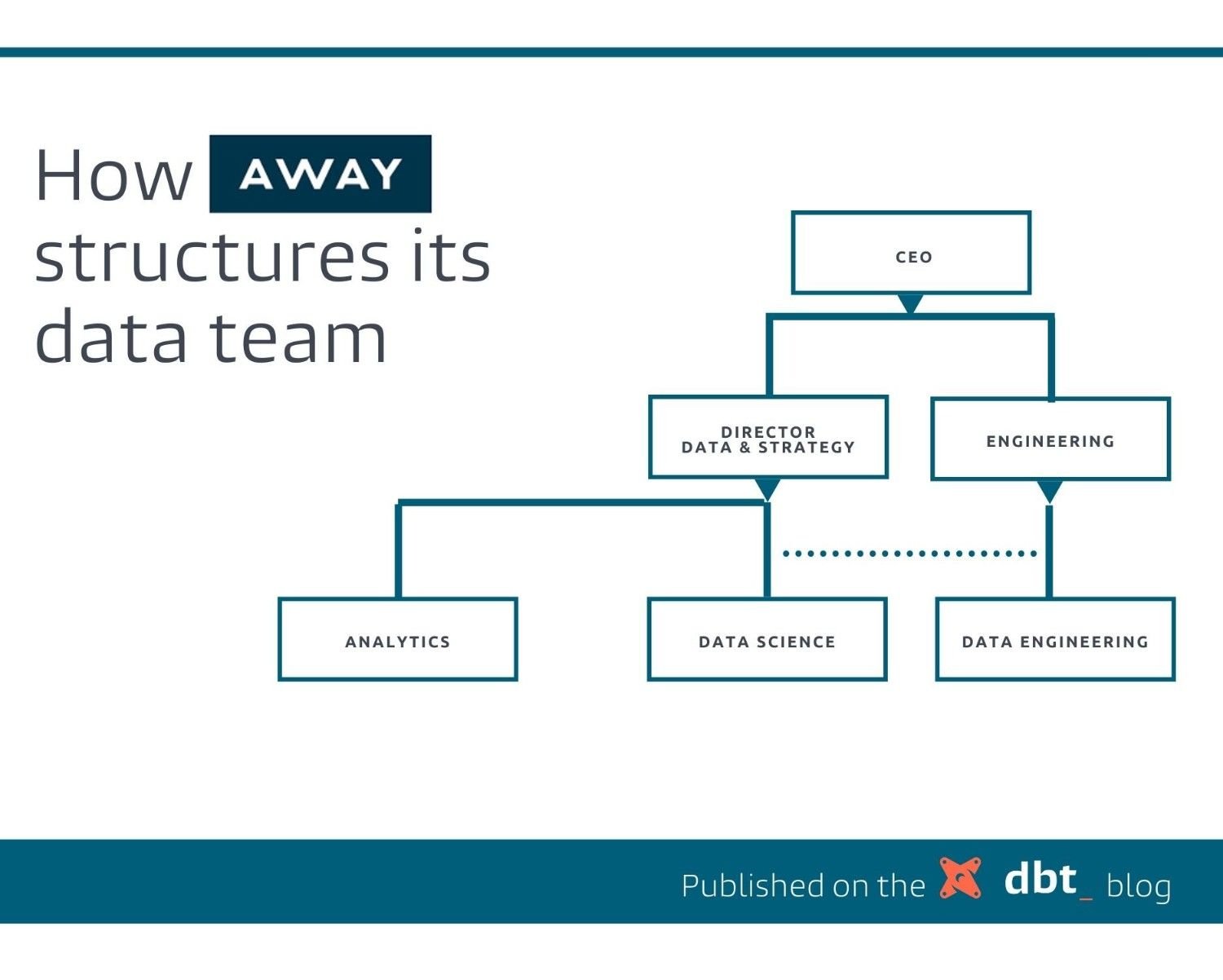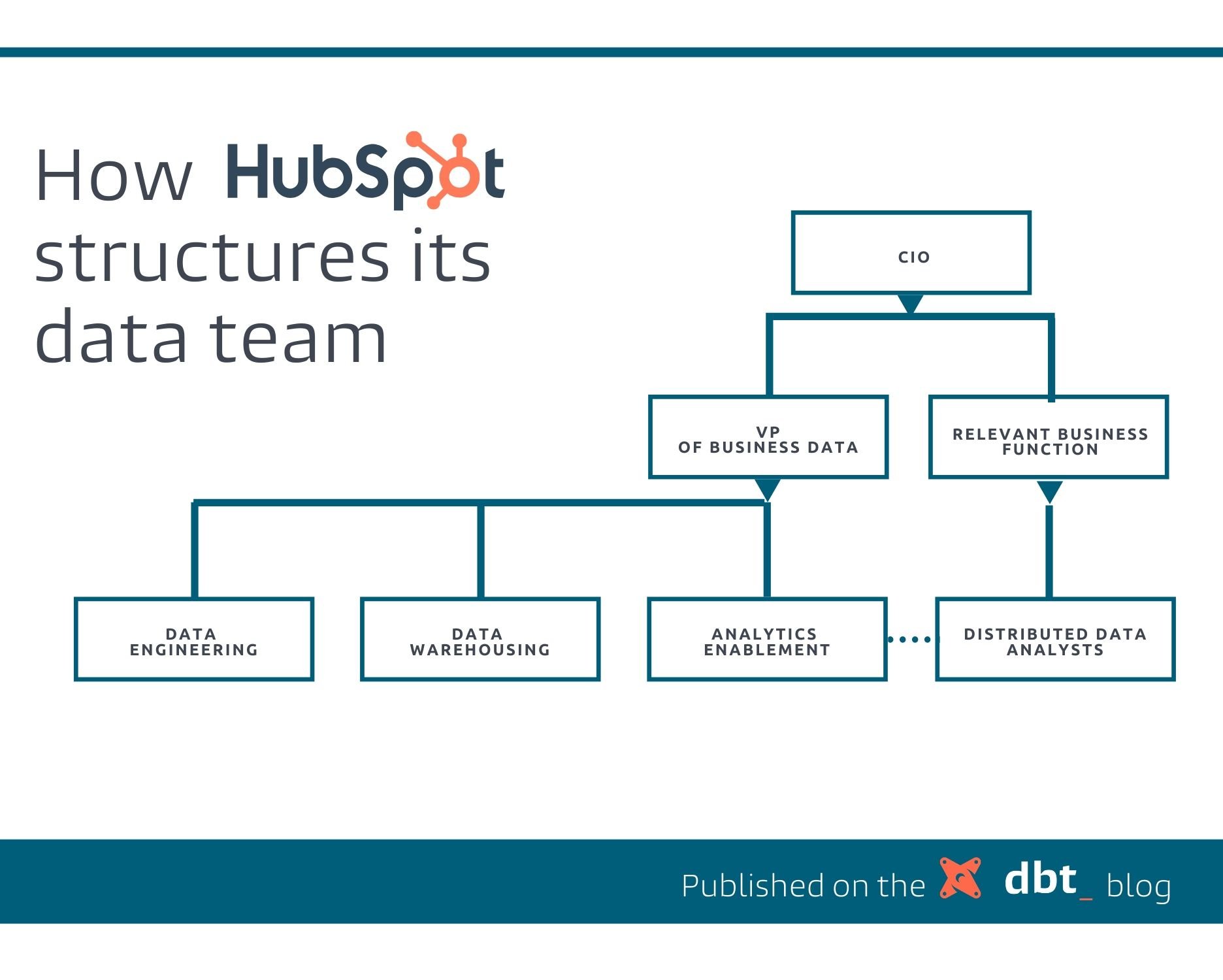Modern Data Team Structures
As data increases in volume and complexity the corresponding team structures change to analyse and derive insights more effectively. DBT provides an excellent article outlining the different structures of multinational organisation data teams.
Here is the article and relevant organisational structures shared:
https://www.getdbt.com/data-teams/data-org-structure-examples/
Understanding the Core Triad of Typical Data Teams
In my time as a data analyst, the team structure of my employer had three core divisions and I've seen this echoed throughout various organisations in moving into recruitment. These are:
Data Analytics: This division delves into the data to extract insights that support business decisions. The role of data analysts involves understanding business objectives, KPIs, and using statistical tools to interpret data sets. They are the key communicators, transforming raw data into a language that business leaders can comprehend and act upon.
Data Engineering: The unsung heroes in the data field, data engineers, are responsible for designing, building, and managing the data infrastructure. They ensure data is accessible, reliable, and optimised for performance in large-scale processing systems. Their role is critical in maintaining the pipeline that feeds data to analytics and data science teams.
Data Science/Machine Learning: Data science teams use sophisticated methods to identify patterns in data. They build models, algorithms, and simulations to predict future outcomes. Their work often involves machine learning and artificial intelligence to automate and improve business processes.
Let's have a look at screenshots from the DBT article showing large organisational data teams:
Away Data Team Structure
Hubspot Data Team Structure
The Adaptation of Data Teams to Company Needs
Companies are embracing different structures of data teams, customised to their specific needs. For some, the data team is centralised, providing a holistic view of data across departments. Others opt for a more distributed model, with data team members integrated into various departments, fostering a deep understanding of department-specific issues.
The role of the data team can vary between companies too. Some view their data as a product and use their teams to refine and improve this product continually. Other businesses treat their data more as a service, with the team responsible for fulfilling data requests and operational needs.
The Future of Data Teams
Data teams of the future are expected to be more dynamic and adaptable to shifting business landscapes. The emergence of the analytics engineer role exemplifies this shift. Bridging the gap between data engineering and data analytics, analytics engineers have a foot in both worlds. They support analysts with more complex data transformations and engineers with testing and documentation.
Moreover, there is a growing trend towards treating data as a product, with teams becoming increasingly customer-centric. Instead of providing services to internal stakeholders, future data teams will likely own the entire data product process, from conception to execution.
Additionally, the rapid progress in machine learning and artificial intelligence is pushing data science to the forefront of business decision-making. As businesses strive to leverage predictive insights, the demand for machine learning experts within data teams will likely increase.
In conclusion, the way businesses structure their data teams is influenced by the unique needs and strategic objectives of the organisation. What is certain is that as the data landscape continues to change and evolve, so will the structure and roles within data teams. The adaptability and agility of these teams will be key to harnessing the power of data for strategic advantage. As a former data analyst and now a recruiter for data teams, I am excited to witness and contribute to this ongoing evolution in the data industry.
DR Analytics Recruitment is a product of a data analyst, me, combining technical knowledge and industry experience. We build data teams; screening, sourcing and interviewing differently to other agencies not in the field.
Learn more on our website.


